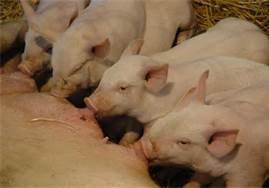**This article is not a substitute for the advice of an attorney.**
This week I was able to speak to two different groups on ag law issues. On Monday, I was in Waxahachie, Texas speaking with folks at the Ellis County Beef and Forage Producer Meeting about agricultural leases. Over the last two weeks, I have also been guest lecturing for Professor Fred Boadu’s undergraduate ag law course here at Texas A&M. Welcome to the new readers from the meeting and the class! Here is a look at some ag law stories making the news this week.
* Oil and gas companies using recycled water. Two articles this week report that drillers are increasingly turning to recycled water used in fracking, rather than relying on fresh groundwater for each well. Apache Corp. reports that for one well site in the Permian Basin, it is recycling 100% of its produced water, meaning that it uses no fresh groundwater in the fracking process and does not utilize any underground disposal wells. According to the second article, the use of brackish and recycled water in the fracking process is increasing across Texas. [Read articles here and here.]
* New Texas Law Requires Proof of Eligibility for Plates. A new law in Texas requires that farmers and ranchers be able to show their state-issued Texas Agricultural or Timber Exemption Registration number before obtaining farm license plates or temporary excess weight permits. The law aims to prevent people from taking advantage of the reduced registration fee and partial sales tax fee exemption offered to farmers and ranchers. Thus, when applying for or renewing farm plates or applying for a temporary excess weight permit, citizens should be sure to bring their registration number to the tax office. [Read article here.]
* Illinois Livestock Operation Odor Not “Pollutants” Under Insurance Policy. Last week, the Illinois Court of Appeals determined that an insurance company could not deny coverage to a hog farmer sued due to odors from his farm under a “pollution exclusion clause” of an insurance policy. The farmer was sued by several neighbors alleging negligence and nuisance claims due to odors from his confinement hog farm and the application of hog manure to surrounding fields. His insurance company, with whom he had an umbrella policy, denied him a defense on the basis that the odor complained of fell within the “pollution exclusion clause” of the umbrella policy. The clause provides that the policy does not apply to claims arising from “actual, alleged or threatened discharge, dispersal, release, or escape of pollutants” and defines “pollutants” as “any solid, liquid, gaseous, or thermal irritant or contaminant including smoke, vapor, soot, fume, acids, alkalis, chemicals, and waste materials.” Specifically, the court stated, “we do not find the hogs, their manure, nor the smells associated with these things constitute traditional environmental pollution.” This case was decided under Illinois law, but could provide persuasive authority for similar issues in other states. [Read opinion here.]
* Class Action Lawsuit Filed Alleging Water Contamination in Oklahoma. A proposed class action lawsuit has been filed in Oklahoma alleging that wastewater from fracking operations has contaminated underground drinking water in Bokoshe, Oklahoma. The lawsuit also claims that coal ash disposed of in the area has caused health problems for residents. Bokoshe citizens have filed suit against nearly 50 companies including the disposal site owners and oil and gas companies. [Read Complaint here.]
*Special Master Sides with Nebraska in Water Dispute with Kansas. On Friday, the Unites States Supreme Court-appointed special master rejected a claim by Kansas that sought $80 million from Nebraska in a dispute over water rights. The dispute involved water rights in the Republican River Basin, which under a 1943 agreement is allocated 49% to Nebraska, 40% to Kansas, and 11% to Colorado. Kansas claimed that Nebraska allowed thousands of wells to be drilled in areas hydraulically connected to the Republican River, thereby depleting river flows. The Special Master’s report concluded that there was “no evidence that Nebraska lacked good faith with respect to this matter” and will be reviewed by the Supreme Court, which will issue a final ruling on the case. He further found, however, that Nebraska should be ordered to pay $5.5 million in actual damages (Kansas had requested $6.6 million); that Kansas’ request for Nebraska to permanently curtail over 300,000 irrigated acres should be rejected; that no independent river master was necessary; and that a Nebraska computer model for measuring water allocation should be used. [Read full special master report here and article here.]












